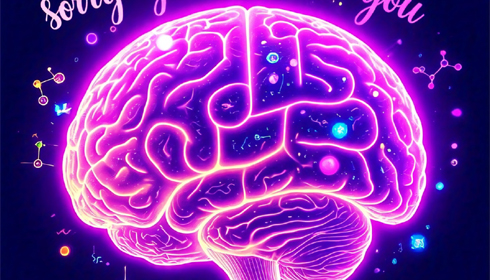
Our Brain Releases Neurotransmitters to Chemically Process Emotional Content of Language: Study
In a new study published in the journal Cell Reports, an international team of researchers led by Virginia Tech scientists discovered how neurotransmitters in the human brain are actively released during the processing of emotional content in language. This research sheds fresh light on how people interpret words and their emotional importance with far-reaching consequences for understanding human behaviour and mental health.
The study, which was led by Read Montague, a professor at VTC's Fralin Biomedical Research Institute and director of the institute's Centre for Human Neuroscience Research and a computational neuroscientist, is the first to look into how neurotransmitters affect the emotional content of language, which is a cognitive function that is only found in humans. The article, which is already online and will be published in the January 28 issue of Cell Reports, makes a connection between the biological and the symbolic. It does this by comparing the complex ways that humans communicate and feel to the ways that our brains have evolved to help us survive across species.
"The common belief about brain chemicals, like dopamine and serotonin, is that they send signals related to the positive or negative value of experiences," said Montague, the study's co-corresponding and senior author. Our research reveals that the emotional interpretation of words triggers the release of these hormones in specific brain regions. More broadly, our findings support the notion that the brain mechanisms that evolved to help us react to beneficial and terrible things in our environment may also play a role in how we process words, which are as vital for our survival."
A crucial finding of the study is the simultaneous measuring of dopamine, serotonin, and norepinephrine release in humans within the complex brain dynamics that drive language processing. Montague informed me that multiple transmitter systems share the emotional content of words, but each system fluctuates differently. "There's no single brain region handling this activity, and it's not as simple as one chemical representing one emotion."
The researchers took neurochemical measures on individuals who were undergoing deep brain stimulation surgery for essential tremors or who were having leads surgically implanted to monitor their seizures. The techniques addressed two different brain regions—the thalamus and the anterior cingulate cortex—providing unique possibilities to detect neurotransmitter activity. During these operations, patients were shown emotionally charged words on a screen, and measurements were obtained with carbon -fibre electrodes in the thalamus and platinum-iridium electrodes in the anterior cingulate cortex. The research showed that words, whether they are neutral, positive, or negative, change the release of neurotransmitters. This shows how emotional tone, body parts, and hemispheric processing change in a matter of seconds.
"The surprising result came from the thalamus," explained William "Matt" Howe, an assistant professor at Virginia Tech's School of Neuroscience. "We observed neurotransmitter changes in response to emotional words, despite the assumption that this region is not involved in language or emotional processing." This shows that even brain regions not normally connected with emotional or linguistic processing may be privy to that information. "For example, regions of the brain that are responsible for mobilising movement may benefit from having access to emotionally meaningful information about direct behaviour."
While humans made the first discovery, animal models later validated the findings. Alec Hartle, a co-first author of the paper and a PhD student in Howe's lab, used optogenetics—a technology that uses light to control genetically engineered cells—to corroborate the patterns found in human brains. By using optogenetics in rat models, the researchers were able to carefully analyse neurotransmitter activities and brain circuits, supporting their human findings.
"What we observed in the human brain was extraordinary," said Howe, the study's co-corresponding and senior author. "The validation in animals supports and solidifies the broader implications of these neurotransmitters in decision-making systems."
This study builds on previous research in Nature Human Behaviour, where the researchers examined the roles of dopamine and serotonin in social behaviour. However, the latest findings investigate neurotransmission in the context of language, a unique human experience. "While previous studies focused on neurotransmission during decision-making, this research explores something uniquely human: the emotional content of written words," explained Seth Batten, the study's first author and a senior research associate in the Montague laboratory. "Unlike animals, humans can comprehend words, their contexts, and meanings. The study looks at how neurotransmitter systems analyse words with varying emotional weights, based on the notion that these systems, which evolved to keep humans alive, now assist in comprehending language.
Although still in its early stages, this study is an important step towards understanding the neurochemical basis of language processing and its effects on cognition, mental health, and decision-making. The study's words came from the Affective Norms for English Words (ANEW) database, which divides words into positive, negative, and neutral categories based on their emotional valence.